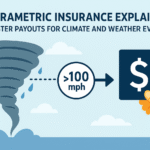Introduction to General Liability Insurance
General liability insurance is a fundamental component of any comprehensive business risk management strategy. This type of insurance plays a crucial role in safeguarding businesses from a myriad of potential claims that could otherwise result in significant financial losses. Essentially, general liability insurance provides coverage for claims involving bodily injury, property damage, and other liabilities that may occur during normal business operations.
For businesses of all sizes, having general liability insurance is not just a precaution but a necessity. It acts as a financial buffer, protecting the company’s assets and ensuring continuity even when unexpected incidents arise. For example, if a customer slips and falls on business premises, the resulting medical expenses and legal costs could be substantial. Without general liability insurance, a business might have to bear these costs out-of-pocket, potentially jeopardizing its financial stability.
The importance of general liability insurance is underscored by numerous real-life examples. Take the case of a small retail shop that faced a lawsuit after a customer tripped over a loose floor tile. The legal fees and settlement costs amounted to tens of thousands of dollars, a financial burden that could have been mitigated with appropriate insurance coverage. Statistics also reveal the prevalence of such incidents; according to the Insurance Information Institute, slip and fall accidents alone account for over 1 million hospital emergency room visits annually, emphasizing the risk businesses face daily.
In summary, general liability insurance is indispensable for protecting businesses from the unpredictable and often costly claims that can arise from routine operations. By ensuring that businesses are prepared for such eventualities, this insurance not only provides peace of mind but also fortifies the foundation upon which businesses can grow and thrive.
Coverage for Bodily Injury and Property Damage
General liability insurance plays a crucial role in safeguarding businesses from claims arising from bodily injuries or property damage linked to their operations, products, or services. This coverage ensures that businesses are protected against financial losses stemming from unforeseen incidents that may occur on their premises or during their professional activities.
For instance, consider a scenario where a customer slips and falls in a store due to a wet floor. The resulting bodily injury claim could encompass medical expenses, rehabilitation costs, and potential legal fees if the customer decides to sue the business. Similarly, if a contractor inadvertently damages a client’s property while performing their job, general liability insurance would cover the repair costs, replacement expenses, and any associated legal liabilities.
When an incident occurs, the process of filing a claim typically involves the business notifying its insurance provider promptly. Detailed documentation of the incident, including witness statements, photographs, and any other relevant evidence, is crucial for a smooth claims process. The insurance provider will then investigate the claim to determine its validity and the extent of coverage. Businesses can expect the insurance to cover legal defense costs, settlements, and judgments up to the policy limits.
Protection under general liability insurance is comprehensive, offering peace of mind to business owners. It helps them navigate the financial implications of accidents and damages, allowing them to focus on their core operations without the looming threat of significant monetary loss. By understanding the scope of coverage for bodily injury and property damage, businesses can better appreciate the value of having a robust general liability insurance policy in place.
Personal and Advertising Injury Coverage
General liability insurance extends its protection beyond physical injuries to encompass non-physical injuries, such as personal and advertising injuries. This aspect of coverage is crucial for any business involved in advertising or promotional activities. Personal and advertising injury coverage includes claims related to defamation, slander, and copyright infringement, among other potential legal issues.
Defamation and slander claims are common examples of personal injuries that can arise in the business context. For instance, if a company makes false statements about a competitor that damage the competitor’s reputation, the affected party may file a lawsuit for defamation. In such cases, general liability insurance can help cover legal defense costs and any settlements or judgments awarded.
Similarly, advertising injury coverage protects businesses against claims stemming from their marketing efforts. An example would be a business that inadvertently uses copyrighted material without permission in an advertisement. The rightful owner of the copyrighted material could sue for copyright infringement, which could result in significant financial liabilities. General liability insurance can provide coverage for these types of claims, including legal fees and potential damages.
The importance of personal and advertising injury coverage cannot be overstated. It plays a vital role in safeguarding a business’s reputation and financial stability. Legal battles over defamation or copyright infringement can be lengthy and costly, potentially draining a company’s resources and diverting attention from core business operations. By having comprehensive general liability insurance, businesses can mitigate these risks and focus on their growth with greater peace of mind.
In today’s competitive market, where advertising and digital presence are pivotal, the likelihood of encountering personal and advertising injury claims is higher than ever. Therefore, securing adequate insurance coverage is not only a prudent financial decision but also a strategic move to ensure long-term business success.
Medical Payments Coverage
Medical payments coverage is a crucial component of general liability insurance. This aspect of the policy is designed to cover medical expenses incurred due to injuries that occur on a business’s premises or as a result of its operations, irrespective of who is at fault. For instance, if a customer trips over equipment at a business location and sustains an injury, the medical payments coverage can be activated to cover the costs of their immediate medical treatment.
The primary goal of this coverage is to address minor injuries promptly, thereby preventing them from escalating into more significant legal issues. By covering these initial medical expenses, businesses can avoid potential lawsuits that might arise from claims of negligence or unsafe conditions. This proactive approach not only safeguards the financial stability of the business but also fosters goodwill and trust among customers and clients.
Consider a scenario where a client is visiting an office for a meeting and slips on a wet floor. If the business has medical payments coverage as part of its general liability insurance, the client’s medical bills for treatment can be covered swiftly. This immediate response can significantly mitigate the client’s dissatisfaction and reduce the likelihood of a lawsuit. Moreover, it demonstrates the business’s commitment to customer care and safety, enhancing its reputation.
In essence, medical payments coverage acts as a buffer, offering financial assistance for minor injuries while simultaneously protecting the business from potential legal battles. The coverage limits are generally lower compared to other liability coverages, reflecting its role in handling smaller, less severe incidents. However, this does not diminish its importance; on the contrary, it plays a vital role in a comprehensive risk management strategy for any business.










